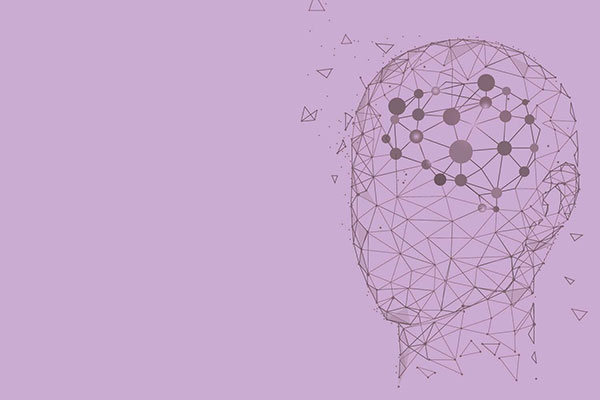
The Pathway to Excellence | Learn
Values in Action
We need to work through the best way to situate our values in action – how we make specific choices about what we will and will not do according to the principles established in our core beliefs and moral code.

Committing To Your Values Through Your Strengths
Your values are only useful to the extent you commit to applying them in your life. You will need to work through the best way to locate, value and situate your values in action – how you make specific choices about what you will and will not do according to the principles established in your core beliefs and moral code.
This level of commitment requires you to learn to believe in yourself, your strengths and how to stand by them. It is important to feel confident in yourself in a non-judgmental setting – you need to have a healthy relationship with your external world – the people around you and the expectations they set for you and others in your life – to embark on this process of growth.
Your weaknesses are your weaknesses. They exist and you should not punish yourself about them. Over time, if you can, you should adopt new approaches and techniques to turn weaknesses into strengths and employ them to generate benefit for both you and others. At a School for tomorrow. we have learnt most of your solutions and successes will come from your strengths when they align with the values at the core of your being.
Creating a Framework For Your Values in Your Actions
The process begins with an inward investigation and flows into an outward interrogation of the world around you. Therefore, the best starting point is identifying your own best character strengths – the knowledge, skills, dispositions, and habits that equip, empower, and enable you for growth, progress, and success. You will need to build a framework to align your values with your actions through your strengths. Use the following questions to help you:
- Can I identify my best character strengths – those character skills and habits that contribute most to my success and wellbeing and that I rely on most often and effectively?
- Do I often see character strengths in others that I admire and wish I could have too? Is it important for me to live with purpose and integrity?
- Do I take the view that with focus and effort, I can work on my character strengths and develop new ones, rather than seeing them as fixed and immutable?
- Is it important to me that my character strengths contribute to the success and wellbeing of others, not just myself?
- Am I becoming competent in reflecting on and setting goals to align my values and character through my competencies?
"Your beliefs become your thoughts,
Your thoughts become your words,
Your words become your actions,
Your actions become your habits,
Your habits become your values,
Your values become your destiny."Mahatama Gandhi
The Journey Towards Mastery: Values In Action Through Competencies
The development and the mastery of putting your values in action is a lifelong process of how we learn, live, lead, and work. You can think about translating values into action in each of these four competencies in the following fashion:
When you learn, you act in accordance with values that connect you to a sense of hope and a desire for the formation of your character:
- Positivity: inspiring learning by mandating and maintaining a positive tone and attitude
- Excellence: displaying enthusiasm for learning by striving for the best possible outcomes
- Capability: building confidence and competence in learning by strengthening knowledge, capacity, understanding and process
- Motivation: encouraging discipline and commitment to learning by boosting mastery, autonomy and purpose
- Personalisation: enhancing learning by respecting and responding to differences and personal needs
When you live, you act in accordance with values that situate you in your world with relevance and meaningfulness:
- Context: approaching life as it is presented in its immediate environment
- Research: cultivating a disposition for truth in life by identifying, investigating and responding to evidence
- Inquiry: consolidating the meaningfulness of life by asking the right questions and using the right tools to answer them
- Review: seeking continuous improvement of outcomes and processes in life by focusing on outputs, evaluating rich data and homing in on what works – impact
- Creativity: promoting innovation in life by harnessing perspective, conceptual thinking, iteration and attention to detail
When you lead, you act in accordance with values that allow you to contribute effectively to the progress and wellness of others:
- Language: developing shared culture and practice with a consistent vocabulary
- Structure: aligning ends, means and intentions through backwards design of planning
- Evaluation: recognising how and when to give feedback to create better outcomes for all
- Challenge: addressing the need for growth and improvement in individuals through appropriate coaching, mentorship and character apprenticeship
- Flexibility: progressing people through logical, clear and adaptable pathways to success
When you work, you act in accordance with values that help you to contribute to the formation of society and the generation of benefit to its members:
- Cause: dedicating our activity to the compelling social rationale for our beliefs, aspirations, and actions
- Thriving: understanding the nature of character, competency and wellness and their related graduate outcomes in a fit for purpose lifelong journey of education
- Alignment: discerning the need for meeting external expectations through one’s actions
- Contribution: encouraging the ongoing demonstration of service to others as the ultimate goal of the culture that sustains us and moves us forward into our preferred future
- Legacy: ensuring that progress is nurtured and sustained beyond our immediate presence
Taking A Step Forward and Up Through Putting Your Values in Action
You need to know what matters to you. You must come to know yourself, your strengths, and you must believe in your ability to improve. You can always be better at what you do. By setting aside time and developing habits that work towards putting your values in action, you can build your understanding of what needs to happen next and how this might be done in a manner that reflects what you believe is good and right.







